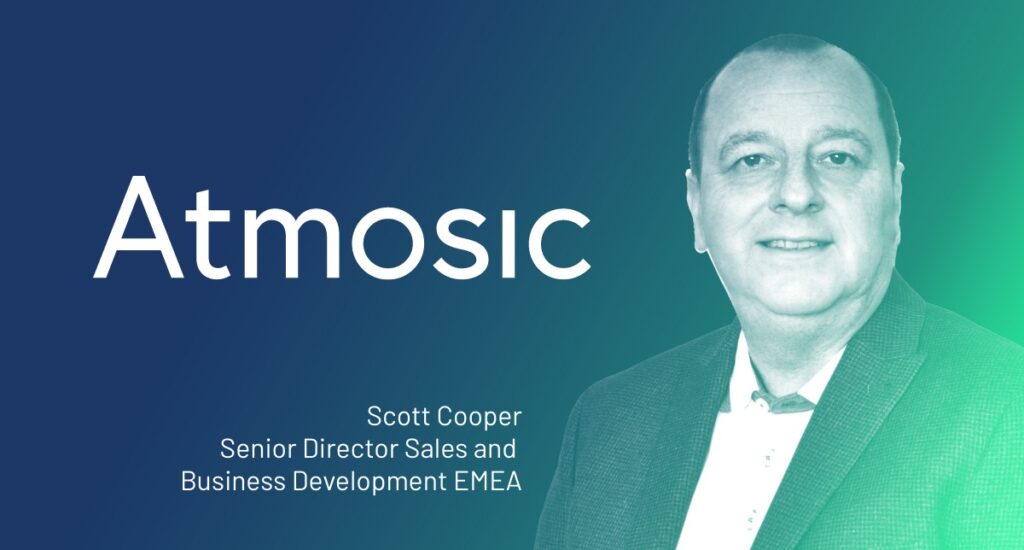By Scott Cooper, Senior Director of Sales and Business Development, EMEA at Atmosic
 Now more than ever, companies are making sustainability a priority in their business and their supply chains. At the same time, the sustainability of products is also becoming a more important factor in consumers’ purchasing decisions. This is taking place all over the world, but the demand for sustainability in products is especially strong in Europe, which is a sustainability leader.
Now more than ever, companies are making sustainability a priority in their business and their supply chains. At the same time, the sustainability of products is also becoming a more important factor in consumers’ purchasing decisions. This is taking place all over the world, but the demand for sustainability in products is especially strong in Europe, which is a sustainability leader.
As a whole, Europe has great public transportation, good recycling rates, and is leading the world by making serious efforts to reduce the effects of climate change. The EU has already cut greenhouse gas emissions by 32% between 1990 and 2020 and is working to become carbon neutral by 2050. Furthermore, European companies outperformed organizations in other regions according to the EcoVadis Business Sustainability Risk and Performance Index, which scores companies across four sustainability themes: Environment, Labor & Human Rights, Ethics, and Sustainable Procurement.
Technology is playing a key role in driving these sustainability efforts. At the individual level, it’s easy for consumers to monitor their energy usage with smart meters; 56% of Europeans are already using smart meters to measure their electricity, and the smart gas metering market is growing fast. We’re seeing more connected devices like smart lighting systems, temperature sensors, and smart plugs that help increase efficiency in people’s homes and in businesses. Cities are also embracing smart parking sensors, water meters, air quality sensors, and other IoT devices to be greener.
The IoT has helped improve sustainability efforts significantly, but the growing amount of battery waste remains a huge issue. The EU is working to address the battery problem by setting a target of having 73% of portable batteries recycled by 2030, up from 51% in 2019. However, since billions of battery-powered connected devices are sold globally every year, even with the EU’s lofty goals a lot of batteries will still end up in landfills.
Atmosic is making it easy for companies and their developers to improve their sustainability efforts and reduce battery waste at the same time. Atmosic’s extremely-low power wireless solutions enable batteries to last for years on a single charge – and this often means batteries often don’t have to be replaced at all during the lifetime of the device. Furthermore, with Atmosic’s integrated energy harvesting technology, some devices do not ever need batteries to operate. Atmosic’s innovative wireless solutions are already being used in a wide variety of IoT applications for smart homes, smart cities, industrial applications, healthcare, and beyond.
Atmosic’s portfolio not only helps companies take their environmental initiatives to the next level, our technology also makes a big difference for end-users. It’s clear that consumers are tired of changing the batteries in their remote controls, keyboards, mice, and other connected devices, so having extended battery life in these applications offers a much better user experience … and it’s even better when devices don’t require any batteries to operate. For companies with fleets of IoT devices such as those making Electronic Shelf Labels (ESLs) or beacon products, Atmosic’s solutions cut down on maintenance time and cost.
Over the next year, Atmosic anticipates that these products will become even more common. ETAG, one of Atmosic’s partners, recently announced its new partnership with Atmosic to reduce the use of batteries in ESLs for retail applications, although ESLs can also be used in other industries including manufacturing, healthcare, and travel.
All in all, we believe that what’s good for the environment can also be good for companies’ bottom line.
To learn more about how our technology is being used across different sectors, please visit here.
